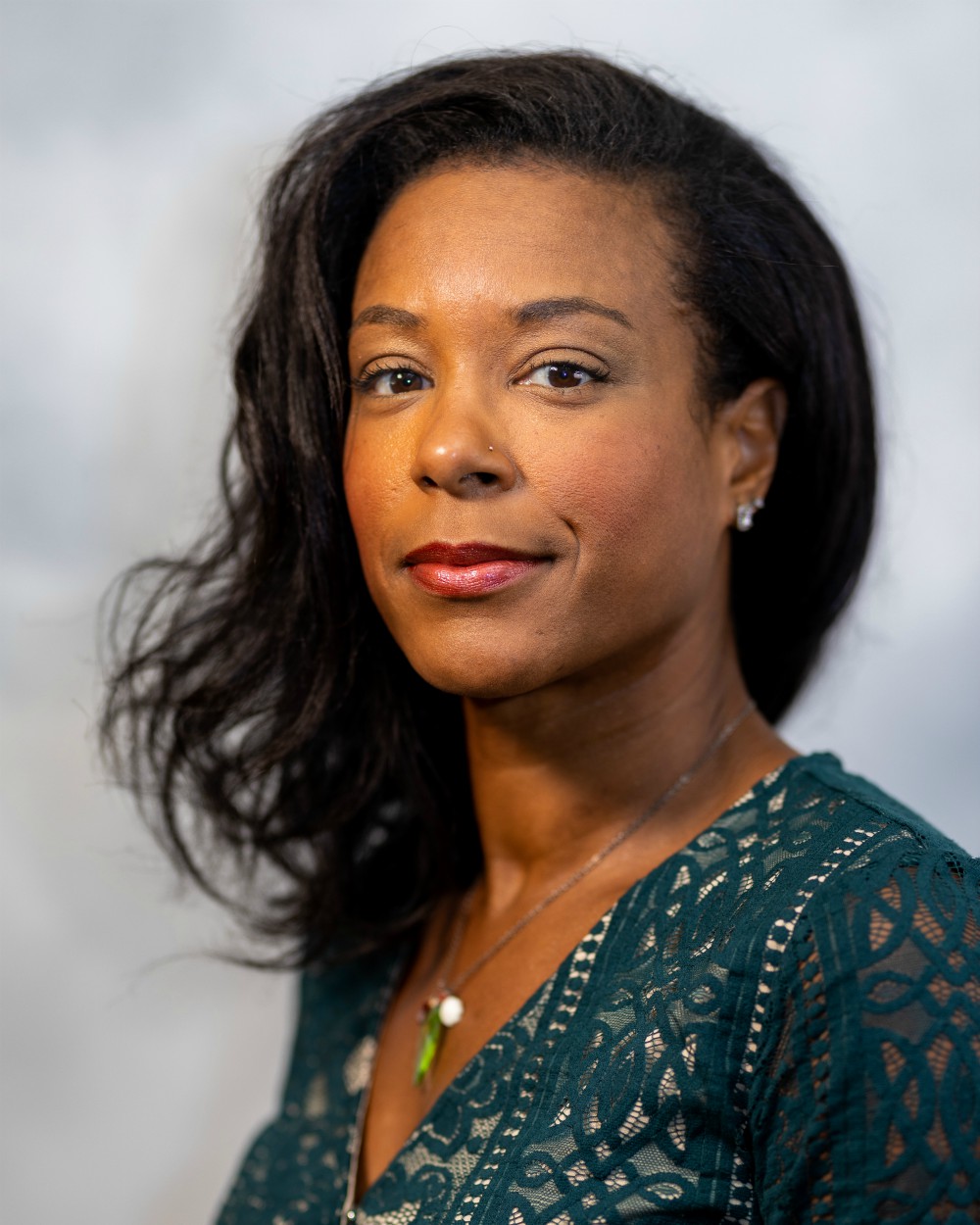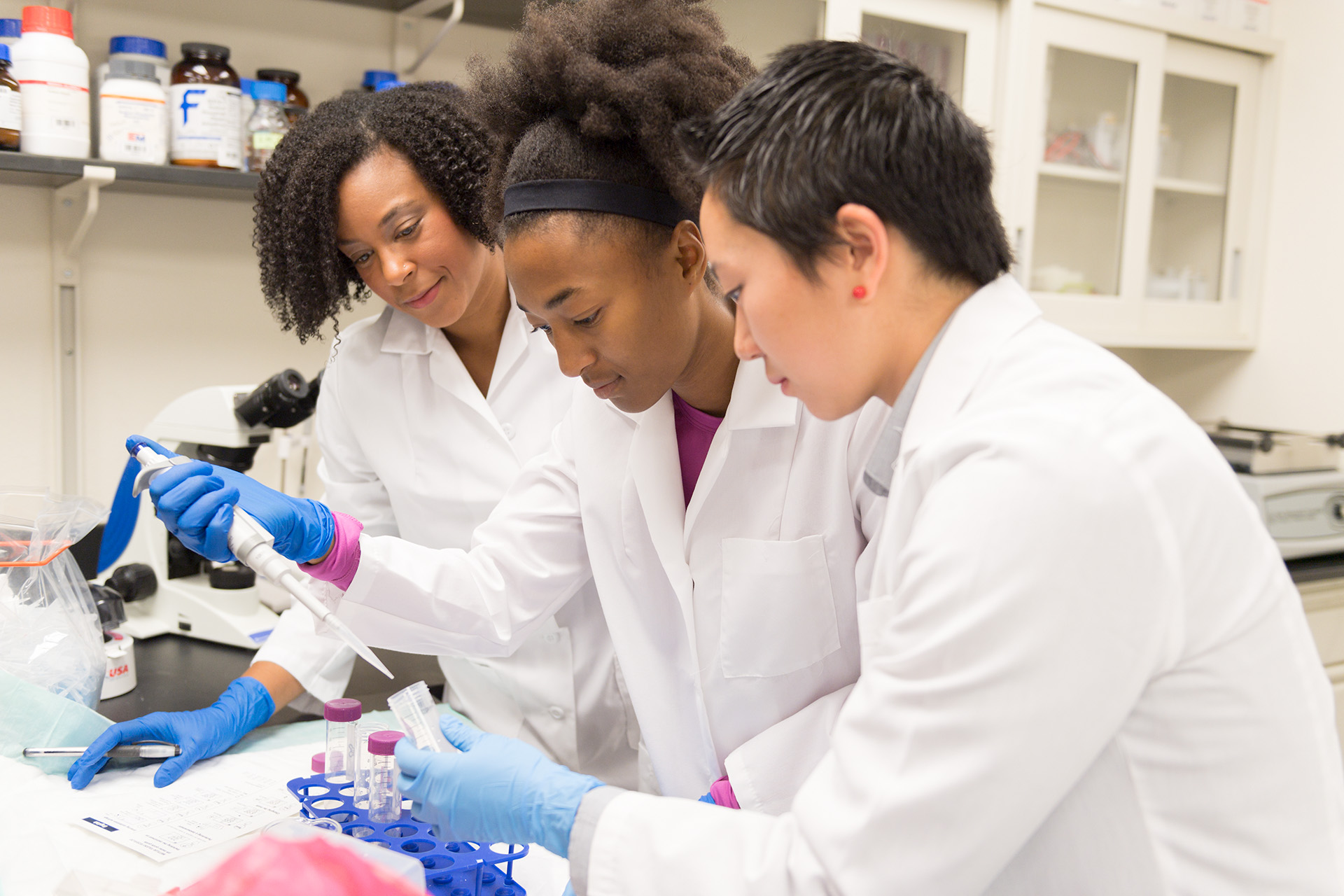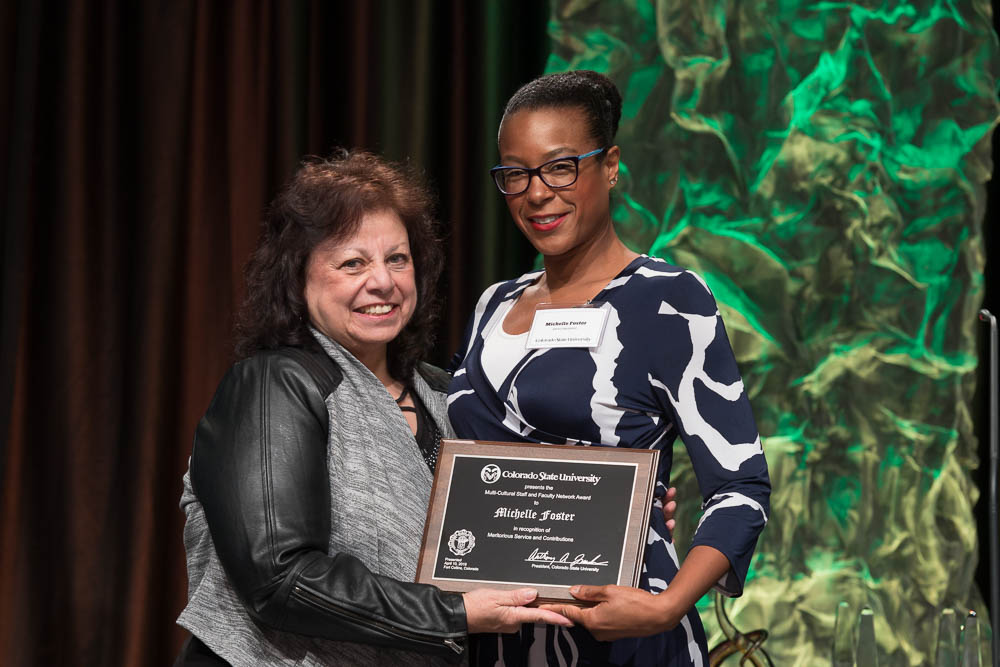 Building on her strong background serving diversity programs at Colorado State University, Michelle Foster is excited to take on the role of the first assistant dean for diversity, equity, and inclusion in the Colorado State University College of Health and Human Sciences. Foster, associate professor in the Department of Food Science and Human Nutrition, currently serves as the director of diversity and access for CSU’s Graduate School among her many contributions to CSU.
Building on her strong background serving diversity programs at Colorado State University, Michelle Foster is excited to take on the role of the first assistant dean for diversity, equity, and inclusion in the Colorado State University College of Health and Human Sciences. Foster, associate professor in the Department of Food Science and Human Nutrition, currently serves as the director of diversity and access for CSU’s Graduate School among her many contributions to CSU.
Elevating diversity, equity, and inclusion efforts
Before she started her position in 2019, Dean Lise Youngblade secured funding for the new assistant dean position to further elevate diversity, equity, and inclusion efforts in the college. The college has always prioritized diversity in various initiatives throughout the decades, including its most recent Diversity Blueprint plan, and through the work of the college-wide Diversity and Equity Advisory Committee.
This position is envisioned to expand, lead, elevate and move this work forward with urgency. High-profile incidents of racism and bias at the University led to President Joyce McConnell’s launch of the Race, Bias, and Equity Initiative at CSU in Fall 2019. Recent racist episodes of police violence and anti-Blackness have led to national Black Lives Matter protests around the country, and there is a critical need to take action to challenge systems of inequity and advocate for social justice.
“I am thrilled to welcome Dr. Foster to this inaugural position in our college,” said Youngblade. “The mission of our college is to promote the health and well-being of people, communities, and the environments in which they live. Our mission calls us to celebrate diversity, strive for inclusive excellence, and work for equity. We have positive work and initiatives occurring across our college and on our campus, and I am looking forward to Dr. Foster’s leadership in helping us to think in the most strategic and impactful ways to unite our efforts and move our commitment forward.”
First-generation student

A first-generation, African American woman, Foster completed high school, her undergraduate degree, and graduate school in Atlanta, Georgia. She started her undergraduate education at a predominately white college, but then transferred to Spelman College, a Historically Black College.
“I wanted to dive into more of my history,” she said, “especially being around Dr. King’s history in Atlanta. For an African American person, Spelman College is the crème de la crème of where you can go to get a really great education. At Spelman, they want you to know about your true history, Black history, which isn’t the history being taught in history classes.”
Foster went on to complete her Ph.D. in neurobiology and behavior at Georgia State University in Atlanta. She then completed post-docs in San Francisco (University of California) and Cincinnati, where she worked at the University of Cincinnati College of Medicine in an obesity research center.
When she was applying for faculty positions in 2011, she found that the Department of Food Science and Human Nutrition at CSU fit her research area really well, so it was a good match, and she experienced a welcoming environment in the department. Another connection to CSU was Greg Florant, a professor in the Department of Biology at CSU, who was her minority professor mentor when she was in graduate school.
Research areas
As director of the Adipocyte Biology and Metabolic Diseases Lab, Foster studies health effects of excess abdominal fat, including on the lymph system. Excessive fat is associated with chronic low-grade inflammation which can lead to an immune cell dysregulation. As a result, the immune cell response to disease in an obese person is less effective than in a lean person, causing obese people to be more susceptible to disease. Her current clinical study is in collaboration with Associate Professor Tiffany Weir and Assistant Professor Sarah Johnson and occurs in the FSHN Food and Nutrition Clinical Research Laboratory.
Foster is also researching a disorder called lipedema, which causes fat to be abnormally distributed in the lower region of the body. She has been looking at tissue samples and how the tissue in individuals with lipedema has different estrogen signaling factors than tissue taken from healthy individuals.
When she first arrived at CSU, Foster sought out opportunities to connect with communities of color. “I started to get involved just through reaching out to other people of color on campus to find friends and a diverse community,” she said. “I got invited to participate in different meetings and got involved in diversity initiatives from there.”
Making progress
By Avery Martin
Throughout the 2020-21 academic year, Foster has made strategic efforts to ensure that diversity, equity, and inclusion are more than words, but instead ingrained in every facet of the College. In order to reach this goal, Foster set out to meet the faculty, staff, and students of the College where they are through both traditional and innovative methods.
Within weeks of adding this new role to her many responsibilities as a researcher, teacher, mentor, and scientist, Foster gave presentations to the dean’s cabinet of the College on the importance of diversity, her goals for the College, and her own life experiences.
“With the cabinet retreat presentations, I provided a reflective experience of what it’s like to be me: a woman of color in higher education,” Foster said. “By discussing the microaggressions that I and other marginalized communities face, I wanted to uncover unconscious biases, and illustrate how this helps individuals to advocate and become allies for diverse people.”
Creating connection
Foster’s next objective was to reach students. In September 2020, she took to Instagram to address the questions and concerns surrounding diversity to a live audience of the College’s followers on the platform. The reach and engagement of the Instagram live Q & A inspired her to expand and innovate again.
Throughout February 2021, Foster hosted open forums to hear from diverse students, faculty, staff, and their allies in a more interpersonal manner. Titled “Creating Connection and Charting the Course,” Foster’s series of Microsoft Teams meetings provided space for dialog, ideas, and concerns to address racial equity, social justice, and cultural responsiveness in the College.
Thanks to the success of the forums, Foster has generated momentum to build communities within the College that are dedicated to the collective mission of increasing and retaining diversity.
“It’s exciting to see the enthusiasm throughout the College and see how much people want to make a difference,” Foster said. “We are all creating a community to cultivate support and ideas pertaining to diverse students, both undergraduate, and graduate, as well as diverse faculty and staff to ensure their voices are recognized, represented, and respected.”
In spite of the limitations that the pandemic placed upon Foster’s ability to directly interact with the College, she has utilized her creativity and passion to remain engaged and connected.
Through the Black and African American Cultural Center (B/AACC), she became connected to numerous diversity programs on campus, at first as a mentor to students of color. She then took on various leadership roles, including a position on the inaugural committee that developed and continues to advise and plan the Multicultural Undergraduate Research Art and Leadership Symposium (MURALS) initiated by Bridgette Johnson, director of the B/AACC.
“I saw the effects on students of seeing a faculty member who looks like them and who cares and wants to help them,” said Foster. “It felt really impactful to hear students say, ‘This has changed my life.’”

She has served on the Multicultural Staff and Faculty Network committee, and has been a reviewer for President McConnell’s Race, Bias, and Equity Initiative. Since 2019, she has been serving in the role of director of diversity and access for the Graduate School. She has also been involved as a research mentor in various graduate programs aimed at increasing numbers of minority faculty in the sciences. She was recognized for her efforts in 2019 with the Multicultural Staff and Faculty Network Distinguished Service Award.
Leading College diversity initiatives
As assistant dean for diversity, equity, and inclusion, Foster is excited for the opportunity to help advance the College’s strategic vision as outlined in the Strategic Plan and Diversity Blueprint plan. She will help lead and implement college-level initiatives to promote diversity and inclusion. Not only is she looking forward to helping the college move forward, but she also wants to set an example for students of color.
“I really wanted to get involved in administration and try my hand at it,” Foster said about this new opportunity. “The higher up you move in the CSU administration, the less diversity you see. I’ve asked what I can do to prepare myself to be a leader in a University. I want students to see me so that they know they also have a route to get where I’ve gotten.”
Foster is interested in advancing all types of diversity. It might have a different meaning depending on the discipline – for example, construction management is focused on recruiting more women, and occupational therapy has guided the College in its commitment to accessibility for people with disabilities. Foster says accountability and retention are two themes that cut across all areas of diversity.
Getting more comfortable with talking about issues of race and privilege and promoting CSU’s Principles of Community in interactions is a good place to start. “One thing that everyone can benefit from is accountability in changing things,” said Foster, who will work initially with the dean on professional development and training with college leadership.
“Another recurring theme is retaining people,” she said. “Let’s keep the people we already have. If we have people leaving we need to find out why they are leaving and make it more desirable for them to stay.”